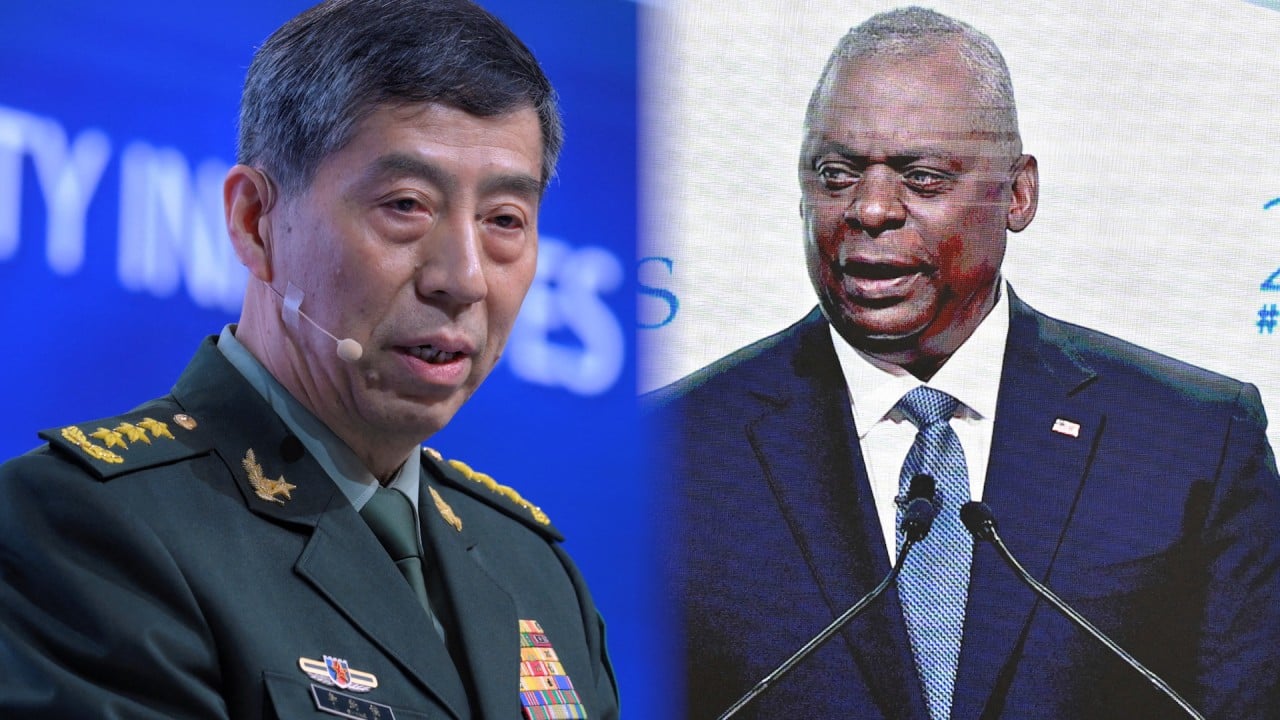
03:45
China, US offer competing security visions for Asia-Pacific at security forum

The US military will be able to operate out of bases in Papua New Guinea, according to the text of a landmark security pact that is part of Washington’s efforts to outflank China in the Pacific.
The full text of the deal was tabled in Papua New Guinea’s parliament on Wednesday evening and obtained by AFP, shedding light on details that have been closely guarded since the pact was signed in May.
With Papua New Guinea’s agreement, the United States will be able to station troops and vessels at key airports, as well as sites such as the Lombrum naval base on Manus Island and a seaport in the capital Port Moresby.
Washington would have “unimpeded access” to the sites to “preposition equipment, supplies and materiel”, and have “exclusive use” of some base zones where “construction activities” could be carried out.
Access to Lombrum could be used to reinforce US facilities on Guam to the north, which could be key in the event of a conflict over Taiwan.
Prime Minister James Marape has been forced to defend the deal against a wave of protests and criticism, with some opponents questioning whether Papua New Guinea was signing away its sovereignty.
“We have allowed our military to be eroded in the last 48 years,” he told parliament on Wednesday evening. “Sovereignty is defined by the robustness and strength of your military.”
Rich in natural resources and close to key shipping routes, Papua New Guinea increasingly finds itself at the centre of a diplomatic tug of war between Washington and Beijing.
Former prime minister Peter O’Neill said the agreement painted a target on Papua New Guinea’s back.
“America is doing it for the protection of their own national interest, we all understand the geopolitics happening within our region,” he said.
Meanwhile, Palau President Surangel Whipps Jnr said the Pacific island nation has asked the US to step up patrols of its waters after several recent incursions by Chinese vessels into its exclusive economic zone.
Whipps Jnr said he would also welcome a bigger US military presence in the country, with troops stationed alongside existing coastguard and civil action teams.
“No matter what, we’re going to be in the centre of whatever’s happening, so it’s important that we’re protected,” he said during a visit to Tokyo on Wednesday, adding that “to get peace, you have to project strength”.
Palau identified Chinese vessels in its waters as recently as last month, when a ship appeared to be surveying an area near fibre optic cables vital to the country’s communications, Whipps Jnr said.
He said he would raise the issue of the incursions at the regional Pacific Islands Forum leaders meeting in November. The group has previously said they would take a united position on dealing with major powers, and last year rejected a push by China to sign a security and trade deal with 10 of its 18 members.
During the multi-day trip to Japan, Whipps Jnr also visited the Fukushima Daiichi Nuclear Power Plant, which experienced a triple core meltdown from a tsunami triggered by a massive earthquake in 2011.
Japan is set to release a million tonnes of water starting this summer from the nuclear power plant into the Pacific Ocean. The water will have most of its radioactivity removed and be diluted to internationally approved levels but will still contain traces of tritium, an isotope that is difficult to separate from water.
The plan has been criticised by some local fishermen and neighbouring countries, including South Korea, China and some Pacific island nations.
But Whipps Jnr said he was not opposed to the plan and that he sensed regional resistance was also waning.
“We’ve made a decision that what they’re doing is right and we should support them,” he said.
Additional reporting by Reuters